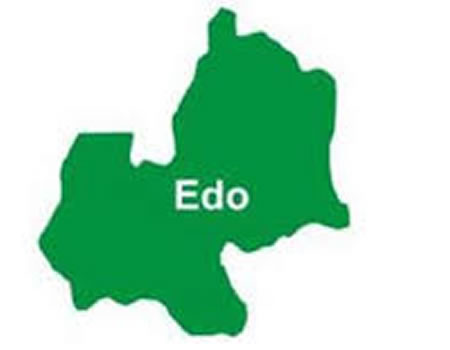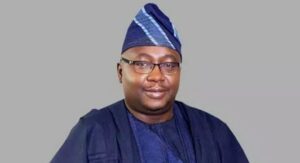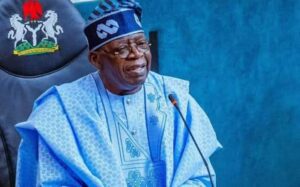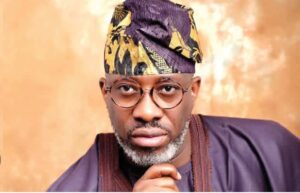

Security beef up as Edo holds guber polls tomorrow
By Elvis Omoregie, Benin
The streets of Edo State are buzzing with anticipation as the much-awaited governorship elections finally arrive. From Benin City to rural areas in Esan, Etsako, Akoko-Edo and Orhionmwon where conversations are dominated by the political future of the state.
Tension and excitement mix in equal measure as residents across the state prepare to cast their votes, while major political parties, including the Labour party, APC and PDP, rally their final campaigns.
“We just want to see real change this time,” says Festus Eweka, a civil servant in Benin, reflecting the sentiments of many voters eager for improvements in governance.
Supporters of different political parties are vocal about their hopes and aspirations for their candidates. Below are responses from supporters across four key political parties in the race.
For the All Progressives Congress (APC), expectations are high, with many believing their candidate, Senator Monday Okpebholo, will bring about the transformative change the state needs. “Senator Monday has already proven his dedication to infrastructure development,” says APC supporter.
Mr. Daniel Ogbeide from Uromi. “He understands our challenges, and we trust he’ll deliver better roads, more jobs, and improved security across the state.”
Meanwhile, People’s Democratic Party (PDP) supporters are equally enthusiastic. “Our candidate, Mr. Asue Akintunde Ighodalo, represents continuity and stability,” remarks Mrs. Rita Osaghae, a PDP loyalist in Benin City.
“We’ve seen progress under the current administration, and I believe he’s the right person to build on those achievements, especially in the area of healthcare and education reforms.”
The Labour Party supporters themselves are rooting for their candidate with a focus on tackling corruption and revitalizing the local economy. “We need someone fresh, someone not tainted by the traditional political system,” says Mr. Emmanuel Omozuwa, a youth leader in Ekpoma.
“The Labour Party is all about empowering the people and ensuring that resources are used effectively to benefit all Edo citizens, not just the elites.”
For Action Democratic Congress (AC) supporters, the focus is on returning Edo State to the ideals of accountability and community development. Mrs. Grace Uwadiae from Igarra says, “Our candidate has promised to return governance to the grassroots. We are tired of top-down decision-making that ignores the needs of rural communities. With the AC, we can expect a more transparent government that listens to its people.
“At this point, I don’t care which party wins, as long as they address the issue of security in the state,” states Mr. John Aghedo, a small business owner in Auchi. “We’ve seen too much violence and instability in recent years. We need a governor who will restore peace and protect us.”
Expectations of Edo People:
As voters prepare to make their choice, the key issues driving the election remain clear. Across the state, there is a growing demand for solutions to unemployment, poor infrastructure, and insecurity.
“Edo people deserve a leader who will prioritize their needs and implement lasting solutions,” states Ms. Osarumen Igbinovia, a teacher from Auchi. “It’s not just about winning an election, it’s about delivering on promises.
For the young people in particular, the search is for a leader who will engage them meaningfully. This election presents an opportunity for Edo to invest in its youth, a demographic eager to contribute to the state’s development.
For many youths, the focus is on creating sustainable employment opportunities, as well as education reforms that would equip them with the skills to thrive in the modern economy.
“We want a candidate who will provide us with opportunities, not just talk about them,” says Osemudiamen Ojo, a university graduate in Benin.
“It’s not enough to promise jobs. We want a governor who will reform the education system to prepare us for today’s job market,” says Efe Omoruyi, a recent graduate from Ambrose Alli University.
In many Edo rural areas, the expectations are more basic yet urgent. Some residents feel disconnected from the political class and hope that the next governor will bring development closer to them.
“We are still struggling with bad roads and no access to clean water,” laments Mrs. Margaret Ogiesoba, a hawker of fruits from Uromi. “Whoever wins must focus on bringing infrastructure to the rural areas. We are tired of being neglected.”
Similarly, the elderly are calling for better healthcare services and support systems. “Healthcare in Edo is broken, especially for those of us in the villages. We need a governor who will fix our hospitals,” says Pa Jonathan Imaribe, a retiree from Iguobazuwa.
This sentiment is echoed by many older citizens who are concerned about the lack of adequate medical facilities in their communities.
Small business owners and traders in Benin City are also looking to the election with hope for economic reforms. “Business has been tough in recent years,” shares Mrs. Eunice Obasa, a market woman in New Benin. “We need a government that will make it easier for small businesses to thrive by reducing taxes and improving the electricity supply.”
For many business owners, the promise of an improved economy is crucial, as they struggle with high costs of running their businesses. Mr. Chuks Nwaneri, a shop owner in Mission Road, believes that if the incoming government can improve infrastructure, especially roads and power, businesses will be able to flourish. “We want an enabling environment to grow our businesses and create jobs for others.”
Among professionals and members of civil society, there is a call for more transparency and accountability from the incoming administration. “We need leaders who will be transparent in managing the state’s resources,” says Mr. Samuel Iyamu, a lawyer in Benin. “There has been too much wastage and corruption in the past. We are watching closely to see who will commit to anti-corruption measures.”
Mrs. Faith Obanor, a member of a local NGO, emphasizes the need for better governance. “We want leaders who will govern with integrity and put the needs of the people first. Too many times, our leaders have been focused on personal gains rather than the welfare of the citizens.”
One of the most pressing concerns for Edo people, however, remains security. With the rise in crime and the impact of political violence in the state, many voters are looking for a governor who will prioritize security.
“Insecurity has crippled our state. We cannot continue like this,” says Mr. Charles Osagie, a taxi driver in Benin. “The next governor must do something to make Edo safe again. We need more police presence and policies that will reduce crime.”
Mrs. Agatha Omoregie, a teacher in Fugar, echoes the need for safety, especially for women and children. “As a mother, my greatest concern is the safety of my children. Whoever becomes governor must ensure that our communities are safe.”
Need for a transparent and violence-free election
The call for a peaceful election is resonating across the state, days after one party failed to sign a peace accord and declared it a do or die affair. However the volte face later has helped to reduce tension to some extent.
Previous elections in Edo have been marred by violence, and there is a strong desire for this election to be different. Civic organizations and international observers have emphasized the importance of a credible voting process.
“We want an election where the people’s voices are heard, not one dictated by violence or rigging,” says Mr. Bright Okoh, a member of a local electoral watchdog group. With heightened security and increased voter awareness, there is hope that Edo State will set a new standard for peaceful elections.
Stakeholders Echo the call for peace
Political Parties Commit to Peace Accord:
In the days leading up to the election, major political parties, including the APC, PDP, LP, and others, have signed a peace accord, committing to a violence-free election. This accord, brokered by the National Peace Committee led by former Head of State General Abdulsalami Abubakar, was signed by all the leading parties and their candidates, except the PDP in Benin City.
Speaking at the ceremony, General Abubakar urged all political parties to honor their commitment to peace. “The eyes of the nation and the world are on Edo State. Let this election serve as a model for others across Nigeria,” he said.
Mr. Jude Igbinovia, a leader of the All Progressives Congress (APC), assured the public that his party is committed to peaceful conduct. “We believe in democracy, and we are here to play by the rules. We urge our supporters to remain calm and let the election process run its course.”
Similarly, Mr. Osahon Imoudu of the Action Democratic Party (ADP) pledged that his party would abide by the peace accord and work towards a peaceful election day.
Religious leaders, traditional rulers, and civil society groups have all added their voices to the call for peace. Pastor Osaze Uwaifo of Christ Chosen Church in Benin City called on political parties and their supporters to embrace non-violence.
“We need to remember that Edo State is bigger than any individual or political party,” Pastor Uwaifo said during a recent church service. “The election should be an opportunity for growth, not destruction. We must pray and act for peace.”
Traditional rulers have also been playing their part in ensuring a peaceful election. His Highness the Onojie of Urohi, Aidenogie II, recently hosted key political figures from across the parties at his palace. He urged them to prioritize the safety and security of the people over political gains.
“As leaders, your actions and words influence your supporters. Make sure that your campaigns are peaceful and do not incite violence,” he stated. His call for unity was well-received, with party representatives promising to do their part in ensuring a peaceful process.
The Independent National Electoral Commission (INEC) has also made it clear that they are committed to conducting free, fair, and transparent elections. Dr. Emeka Obiekwe, an INEC official overseeing the Edo elections, noted that the Commission has increased its efforts to curb electoral malpractices.
“We are working with security agencies and civil society groups to ensure that the election is free from violence and rigging. We have also enhanced our technology to detect and prevent any form of manipulation,” Dr. Obiekwe said during a pre-election briefing.
Security agencies, including the Nigerian Police Force, have assured residents of their readiness to maintain law and order during the elections. Commissioner of Police, Mr. Lawal Tanko Jimeta, confirmed that a special task force has been deployed across the state to prevent any outbreak of violence.
“We are monitoring all flashpoints and have increased patrols in vulnerable areas,” he said. “Any attempt to disrupt the election process will be dealt with swiftly. Our priority is to ensure that voters can exercise their rights in a safe environment.”
For civil society groups such as the Edo Civil Society Coalition and local NGOs they have been playing crucial roles in promoting voter education and encouraging peaceful participation.
Mrs. Patricia Igbinosa, a member of the coalition, emphasized the need for transparency in the election. “We need a system where every vote counts, and that begins with a transparent electoral process. Voters must be confident that their choice will be respected. We are also encouraging women and young people to actively participate, as their voices are crucial to shaping the future of our state,” Mrs. Igbinosa remarked during a voter sensitization campaign in Ovia North-East.
International observers have also arrived in Edo State, tasked with monitoring the conduct of the elections. “We are here to observe and report. Our aim is to ensure that the election is conducted in line with international best practices,” said Mr. David Boyd, a representative of the European Union Election Observation Mission (EU EOM). He stressed that the role of external observers is to ensure transparency, adding that any irregularities would be reported immediately.
Nevertheless, with heightened security and increased voter awareness, there is hope that Edo State will set a new standard for peaceful elections in Nigeria as all parties, the INEC and security agencies join hands. All eyes will remain fixed on the voting process, with the hope that the will of Edo people prevails thereafter.
Meanwhile the distribution process of sensitive and non sensitive materials have started as early as 9am this morning at the premises of the Central Bank of Nigeria, located at the Ring Road, by Akpakpava junction Benin City.
As at the time of this report hundreds of commercial buses hired by the Commission were seen lined up at the behind the CBN building with heavy security presence.
Journalists from the 36 states of the country both the print, online and electronics, besieged the venue waiting patiently for the arrival of the State Resident Electoral Commissioner (REC), Onuoha Anugbum to speak on development.




